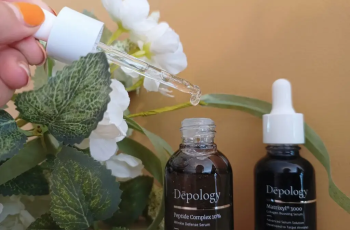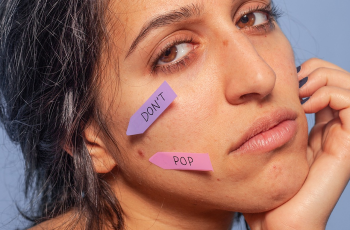
.webp)
.webp)
.webp)
How Muslim Women Keep Their Skin Hydrated During Ramadan: Expert Advice & Community Wisdom
.webp)
.webp)
The arrival of Ramadan, the ninth month of the Islamic calendar, marks one of the most spiritually fulfilling times of the year for Muslims across the world. It is a sacred month dedicated to self-reflection, prayer, and fasting, where from dawn until sunset, Muslims abstain from all food and drink—including water. These fasts can last anywhere from 12 to 16 hours, depending on the season and geographic location. It’s a time of physical endurance, spiritual renewal, and deep communal connection.
.webp)
.webp)
.webp)
While the emotional and spiritual significance of Ramadan cannot be overstated, the physical changes it brings—especially from prolonged fasting—are also worth addressing. Among them is the impact on skin health, particularly hydration. Without regular water intake throughout the day, many fasters notice changes in their complexion: dryness, dullness, tightness, and sometimes increased sensitivity.
.webp)
.webp)
So, how do Muslim women maintain hydrated, glowing skin while observing such an intense spiritual discipline? We turned to dermatologists, beauty influencers, and everyday Muslim women to understand how skincare routines are adjusted and thoughtfully tailored to accommodate fasting hours—without compromising religious practice or personal care.
.webp)
.webp)
.webp)
Why Skin Hydration Matters During Ramadan
.webp)
.webp)
Our skin is the body’s largest organ, and hydration is key to keeping it functioning properly. According to board-certified dermatologist Dr. Kiran Mian, who practices in New York City, “Water plays a critical role in skin balance and elasticity. When the skin is well-hydrated, it appears smooth, plump, and radiant. When it’s not, the skin can look sallow, dull, and more prone to irritation.”
.webp)
.webp)
.webp)
She compares the skin to a balloon: “When it’s full, it’s taut and firm. But if it deflates—like dehydrated skin—it can sag and lose that vibrant, youthful bounce.”
.webp)
.webp)
Since our skin cells are made up of around 75% water, it’s no surprise that cutting back on hydration, even for religious purposes, will lead to noticeable changes in the skin’s tone and texture. During Ramadan, many fasters experience:
.webp)
.webp)
.webp)
Dry patches
.webp)
.webp)
Increased flakiness
.webp)
.webp)
.webp)
Dull or uneven tone
.webp)
.webp)
Sensitivity to products
.webp)
.webp)
.webp)
Chapped lips or tightness around the eyes and cheeks
.webp)
.webp)
But all hope is not lost. There are still plenty of effective, mindful ways to keep the skin hydrated throughout Ramadan.
.webp)
.webp)
.webp)
Dermatologist-Recommended Hydration Tips for Fasting Skin
.webp)
.webp)
Dr. Mian emphasizes that while water consumption is limited during daylight hours, skincare can still support hydration topically. Below are her essential tips:
.webp)
.webp)
.webp)
1. Switch to a Gentle, Cream-Based Cleanser
.webp)
.webp)
Avoid harsh foaming cleansers or scrubs that may strip the skin’s natural oils. Instead, use hydrating cleansers that nourish as they cleanse.
.webp)
.webp)
.webp)
Try: CeraVe Hydrating Facial Cleanser – Formulated with ceramides and hyaluronic acid to cleanse without drying out the skin barrier.
.webp)
.webp)
2. Seek Out Humectants
.webp)
.webp)
.webp)
Incorporate products that attract and hold water in the skin, even when external moisture is scarce.
.webp)
.webp)
Look for ingredients such as:
.webp)
.webp)
.webp)
Hyaluronic Acid – A superstar humectant.
.webp)
.webp)
Glycerin – Draws water into the skin like a sponge.
.webp)
.webp)
Squalene – Mimics the skin’s natural oils and locks in moisture.
Dimethicone – Acts as an emollient and barrier protector.
Try: Kiehl’s Ultra Facial Cream with Squalane, La Roche-Posay Cicaplast Baume B5.
3. Use Thermal Spring Water Mists
A quick spritz of thermal water can offer mid-day relief without breaking your fast. Though not a substitute for drinking water, these mists can visibly refresh tired, dry skin.
Try: Avene Thermal Spring Water Spray – Calms and hydrates the skin with minerals and antioxidants.
4. Don’t Skip the Moisturizer
Post-cleanse, always seal in hydration with a rich moisturizer—especially one containing occlusives (like petrolatum or shea butter) that help trap moisture in the skin.
5. Avoid Irritating Actives (or Use Them Sparingly)
If your normal routine includes exfoliants (like AHAs/BHAs) or retinoids, consider reducing frequency or opting for gentler alternatives, as your skin may be more sensitive while fasting.
6. Use a Humidifier
For those living in colder or drier climates, running a humidifier overnight can maintain environmental hydration—particularly helpful while sleeping after Suhoor (pre-dawn meal).
Skincare Routines From Muslim Women Who Fast
Of course, dermatologists offer expert advice, but there’s also deep value in hearing from women who observe Ramadan firsthand. Their daily skincare regimens are not only effective but deeply thoughtful, rooted in consistency, accessibility, and care.
Sahar Kariem – Aspiring Stylist, NYC
Sahar keeps her routine simple yet effective. She swears by the Neutrogena Hydro Boost Water Gel, using it both morning and night for a consistent dose of hydration.
“During Ramadan, my sleep gets all over the place, so my skin looks tired,” she says. “The Vitamin C Clay Mask by Gleamin gives my face that extra brightness. It helps me look refreshed even when I feel exhausted.”
Narjis Hussain – Modest Fashion Influencer, Chicago
Narjis takes a balanced approach to skincare, focusing on regular exfoliation and deep moisture. She exfoliates twice a week and follows up with sheet masks or hydrating creams.
“I also use lip balms religiously throughout the day, especially since I can’t drink water,” she explains. “My lips chap easily during fasts, so hydration there is non-negotiable.”
Narjis also highlights the importance of professional care, when possible: “I like to get a hydrating facial at the start or end of the month. It resets my skin and helps everything else absorb better.”
Nutrition Plays a Role Too
While skincare products are vital, internal hydration still matters—especially when you’re only consuming food and liquids during limited hours. Experts suggest focusing on water-rich foods and hydrating beverages during Iftar and Suhoor.
Foods to Include:
Cucumbers, watermelon, tomatoes, lettuce
Soups and broths
Oats soaked in milk or water overnight
Chia seeds (which absorb 10x their weight in water)
Herbal teas or coconut water
Avoid:
Excess caffeine – It’s a diuretic and can worsen dehydration.
Salty or processed foods – Can increase water loss.
Try to drink at least 6–8 glasses of water between Iftar and Suhoor, and spread it out rather than drinking a lot all at once.
Sleep & Stress Management: The Unsung Heroes
Ramadan often brings changes in sleep patterns—late-night prayers (Taraweeh), early Suhoor, and short naps. This disrupted sleep schedule can increase stress hormones like cortisol, which in turn negatively affect the skin.
Tips to protect your skin during Ramadan:
Prioritize naps or short rest periods to balance lack of nighttime sleep.
Incorporate calming rituals like gentle facial massage, warm showers, or journaling.
Use caffeine-free herbal teas like chamomile to relax the mind and body.
Final Thoughts: Radiance From the Inside Out
Ramadan is not just about abstaining—it’s about refinement, reflection, and intention. Caring for your skin during this sacred month is an act of self-respect and wellness, aligning with the spiritual goal of becoming the best version of yourself.
Yes, fasting comes with physical challenges, but it also instills powerful habits—discipline, mindfulness, and compassion. By caring for your skin, you’re also honoring your body, which is a trust (or amanah) in Islam.
Let this Ramadan be a time where faith and self-care harmoniously coexist. May your spiritual glow be mirrored by healthy, radiant skin.
Looking for more skincare insights during Ramadan?
Discover our post on hydrating skincare routines using halal-certified products.
Subscribe to our newsletter for weekly tips tailored to wellness-conscious, faith-driven beauty.
Join our community on Instagram where Muslim women around the world share their real skin stories.

